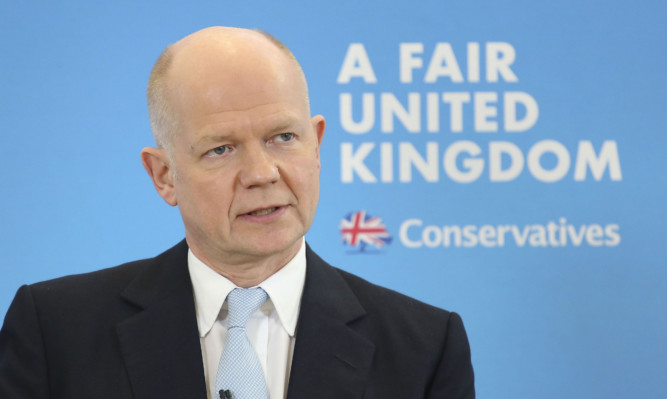Conservatives have claimed a minority Labour government would be “at the mercy” of Alex Salmond, after the former SNP leader said he would “lock” David Cameron out of power in a hung Parliament.
Mr Salmond said that if the SNP held the balance of power after the May 7 election, it would block any attempt by Conservatives to form a minority administration by voting down its Queen’s Speech.
With polls predicting the SNP could increase its representation at Westminster from six to 40 or more, Mr Salmond made clear he expects his party to be crucial in the process of forming a government if the May 7 poll is inconclusive, arguing that a much-reduced rump of Liberal Democrats will not be “a big factor”.
He told New Statesman magazine: “The Tories would have to go straight effectively for a vote of confidence – usually the Queen’s Speech, although it could be otherwise, of course, and we’d be voting against.
“So if Labour joins us in that pledge, then that’s Cameron locked out. And then under the (Fixed-Term) Parliaments Act that the Westminster parliament’s passed but nobody seems to have read, you’d then have a two-week period to form another government – and of course you want to form another government because this might be people’s only chance to form another government.”
Mr Salmond said the SNP could enter a “confidence and supply” arrangement with Labour – under which the smaller party would agree not to bring down a minority government in return for concessions on particular priorities – but said it was more probable that it would offer its support on a vote-by-vote basis and would make amendments to any budget put forward by Ed Balls to introduce “progressive tax measures”.
Conservative leader of the Commons William Hague predicted that this would mean the SNP demanding “higher taxes, higher welfare spending, higher immigration, weaker defences” as the price for its support of a minority Labour administration.
Mr Hague told Sky News: “This means that now you know exactly what you get if you vote Labour in the coming election. You get a weak government led by Ed Miliband, propped up by Alex Salmond – even if Labour had fewer seats than the Conservatives – a weak Labour government, propped up by Alex Salmond and at the mercy of Alex Salmond every single day.
“And we now know what he would demand. He would demand higher taxes, higher welfare spending, higher immigration, weaker defences. So that would be the chaotic situation we would have.
“It would be bad for the country, bad for the unity of the United Kingdom, and I think it is an additional reason for people to vote Conservative on May 7.”
Mr Hague declined to say which party Conservatives would seek a coalition with if they fail to achieve an overall majority, saying: “We are setting out to win a majority. We are not going to put plans in place for different scenarios from that.”
The former SNP leader made clear he has not entirely ruled out the possibility of a formal coalition with Labour – even though it has been forsworn by Mr Miliband.
“If I were him, I wouldn’t have ruled it out,” said Mr Salmond. “Nicola (Sturgeon, the SNP leader) has always said that she thought full coalition was unlikely. But she didn’t rule it out: she said it was highly unlikely – it’s still highly unlikely.”
Asked what he saw as the probable outcome, Mr Salmond said: “I think probable would be vote-by-vote (support for Labour), and possible would be confidence and supply.”
Mr Salmond said it was “bad politics” for Mr Cameron to float the prospect of English votes for English laws on the morning after last year’s independence referendum and said it was now “not a question of if, but when” a second referendum on separation from the rest of the UK would take place.
